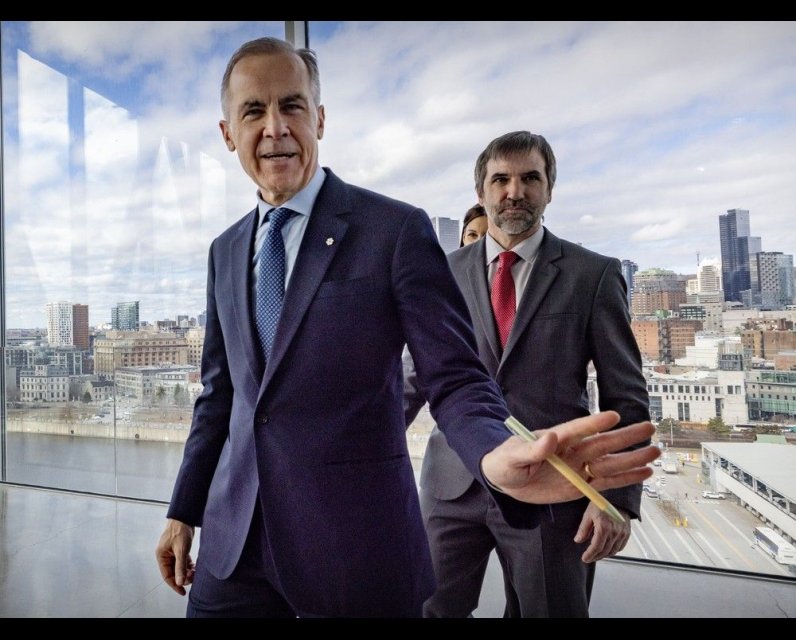Heritage officials asked if CBC and Radio-Canada should be split, internal document shows

OTTAWA — As the federal Liberal government publicly rejected the idea of splitting CBC and Radio-Canada, Canadian Heritage officials pondered whether it was worth exploring, a newly released document shows.
The controversial question was raised when officials prepared a set of worksheets for members of an advisory committee appointed by the former minister to provide input on the future of the public broadcaster.
The document, released to National Post under federal access-to-information legislation, contains around 40 preliminary “discussion questions” that were drafted by officials to “serve as a point of departure for developing these worksheets,” which centred around the themes of CBC/ Radio-Canada’s funding, mandate, and governance.
It contained four “other potential questions,” which included the one about splitting its structure.
“Is there a case for considering a structural separation between CBC and Radio-Canada (e.g., with distinct funding, boards and leaders, etc.)? Why or why not? What would be the benefit and drawbacks of such a model,” officials wrote in the undated document, prepared between December 2023 and May 2024 for Pascale St-Onge, the former minister of Canadian Heritage, who did not seek re-election.
In a statement, a department spokeswoman did not directly say whether that issue was ultimately proposed or why officials raised it, but said the former minister met with the advisory committee to discuss “a range of questions” dealing with the public broadcaster, from its funding to transparency and programming.
Those meetings informed a set of reforms the former minister proposed back in February, where she did raise the need to better emphasize the separation between CBC and Radio-Canada, at least editorially.
Other “potential questions” included how often the corporation’s mandate should be reviewed, whether “public-value tests” were necessary to assess the impact of new initiatives over concerns about competing for audiences, and how timely it was to still have a “single national public broadcaster,” versus a more decentralized model.
The current CEO of CBC/Radio-Canada, Marie-Philippe Bouchard sat on the advisory panel before she was appointed to her role, but spokesman Leon Mar said in an email they understood that advisory committee members “ committed to keeping their discussions confidential — it was a condition of their participation.”
He deferred questions to Canadian Heritage Minister Steven Guilbeault’s office.
A spokeswoman for Guilbeault said the “close collaboration” between CBC and Radio-Canada was important to deliver programming and pointed to how they share resources.
“For these reasons, separating the two is not on the table,” Hermine Landry said in a statement.
“We are currently working on our plan to strengthen CBC/Radio-Canada, and will have more to say in the near future.”
Jeffrey Dvorkin, a former CBC Radio managing editor and longtime public broadcasting executive, who is now retired, said the idea of splitting the corporation was “radical” and that many would likely see it as “an admission of defeat.”
“On the other hand,” he said in an interview, “Radio-Canada is a much more acceptable and popular, and successful organization compared to CBC television.”
He added that he would not outright dismiss the idea and thinks “it needs to be explored.”
“ I think that what’s necessary now is for a mandate to be more adventuresome and more creative than they have been. My sense is that the CBC is running scared.”
Discussions around the feasibility of splitting the corporation have emerged in light of Conservative Leader Pierre Poilievre’s pitch to “defund” CBC while promising to maintain Radio-Canada, which Liberals, including the former minister, said would lead to job losses.
The corporation has said that changes would be needed to the Broadcasting Act, which specifies that its mandate is to provide services in both official languages.
While Poilievre himself has never outright called for separation, one of his Quebec MPs, Joel Godin, told La Presse Canadienne at the time that it would be easier to cut CBC if Radio-Canada were its own Crown corporation.
In May 2024, the Bloc Québécois also sought assurances following a report by La Presse that a “modernization” plan the Crown corporation was advancing internally would not lead to a merger between the French and English programming wings.
Back in February, when St-Onge proposed her series of reforms, which were never advanced before Carney triggered an election in March, she called for “emphasis on the separation of French and English programming.”
A final report into her proposals elaborated that changes to the Broadcasting Act, “could emphasize the importance of the separation of editorial and programming decisions between CBC and Radio-Canada.”
It also argued that the English and French programming wings be “distinct” and meet the needs of the different communities, but underscored the need to keep the corporation as one.
“It is clear that a single organization provides a nationwide vision and a national approach while ensuring administrative and operational efficiencies.”
Carney’s government has yet to advance the campaign promises he made to bolster the public broadcaster, which he emphasized was even more important for the Canadian institution in light of the ongoing trade war with U.S. President Donald Trump, who has repeatedly stated that he wants Canada to become its “51st state.”
While Carney adopted some of St-Onge’s ideas, he has dropped others. The spokeswoman for Canadian Heritage said efforts to modernize the broadcaster would be based on the Liberals’ platform. Nowhere in the document does it mention the issue of better emphasizing the separation between the French and English programming wings.
Carney during the platform panned Poilievre’s position on the broadcaster, saying “y ou can’t split this baby.”
While the former minister proposed bringing CBC/Radio-Canada’s per capita funding closer to the level that other countries fund public broadcasters — around $66 per year, up from the current $33 it costs Canadians each year — Carney has vowed to work towards that goal in the long term and pledged an “initial $150 million” upfront.
And while St-Onge proposed banning the corporation from running advertisements during newscasts, Carney’s plan would allow it to keep running ads — generating another revenue source — while also making it more difficult to unilaterally pull funding by enshrining in law that such changes would have to be approved by Parliament, not a government cabinet.
More stable funding has been a longstanding call of the corporation, which has said it is an outlier among its counterparts. It has seen declining revenues that led to a growing structural deficit of $36 million last year.
CBC/ Radio-Canada receives roughly $1.4 billion in annual funding, and in the 2024-25 budget, it received an extra $42 million, after warning it would have to cut jobs.
Trouble could still be brewing for the broadcaster under Carney’s request that all federal departments and Crown corporations come back with 15 per cent in “annual savings” over the next three years, which includes CBC/Radio-Canada.
“Such reductions will necessarily have an impact on programs and services, but we don’t have any information to share before the government’s decisions on potential reductions are announced,” said Mar.
-With files from La Presse Canadienne
National Post
Our website is the place for the latest breaking news, exclusive scoops, longreads and provocative commentary. Please bookmark nationalpost.com and sign up for our politics newsletter, First Reading, here.



Comments
Be the first to comment